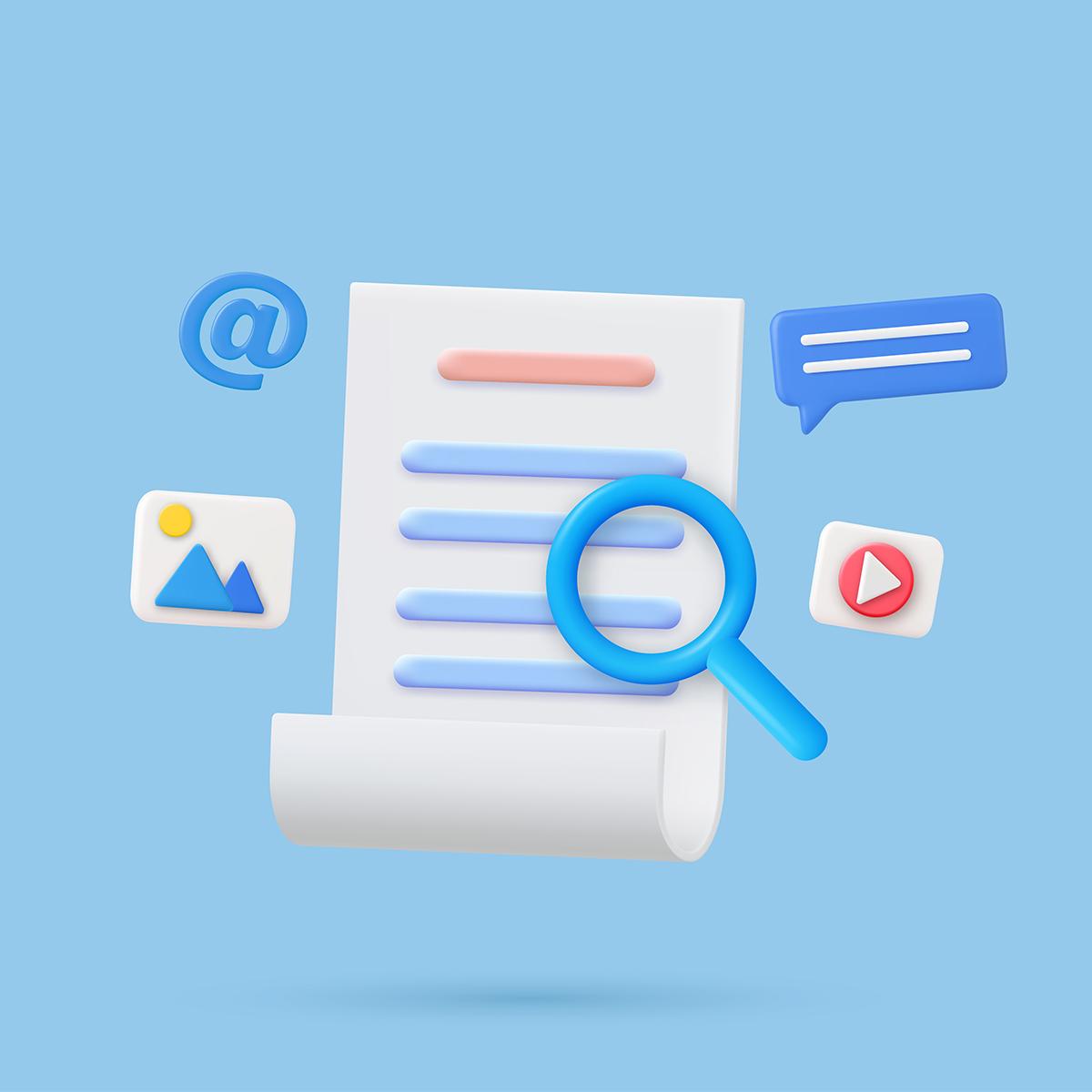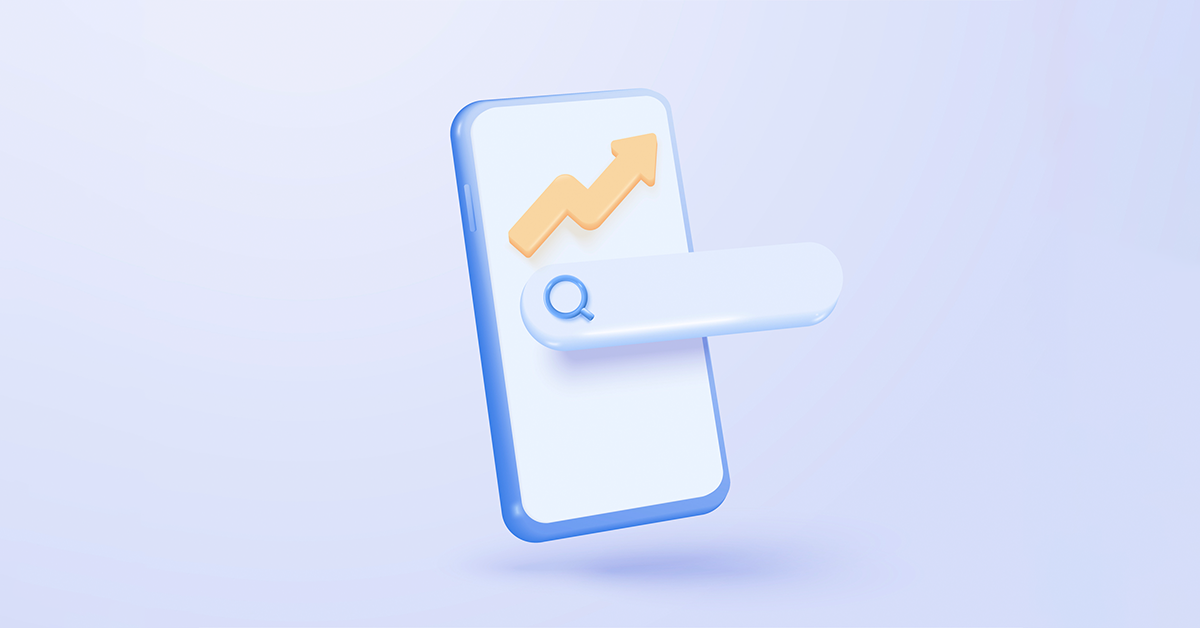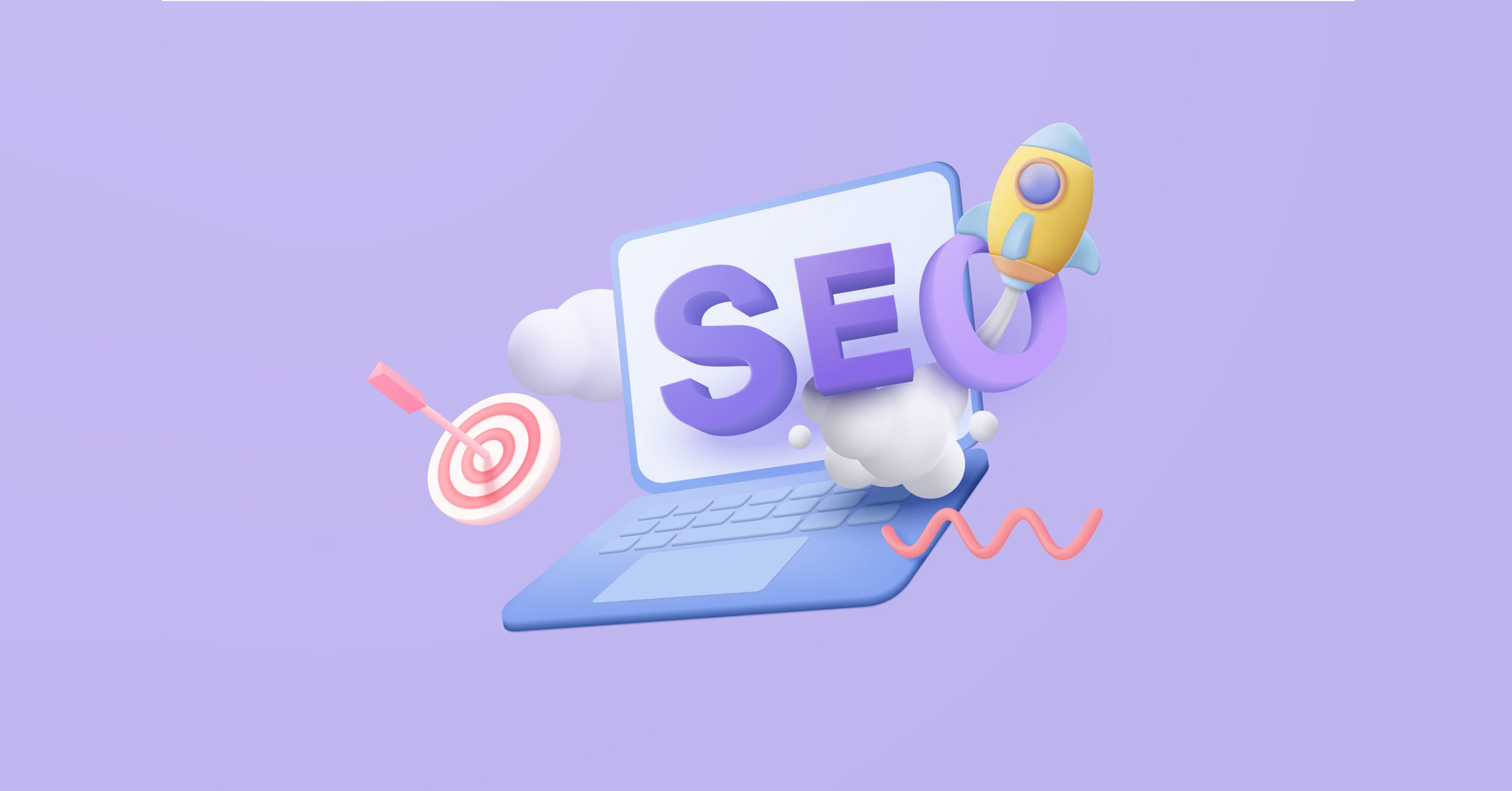What is SEO?
Search engine optimisation (SEO), is the process of enhancing your website so that it can organically (not paid for) achieve high rankings in search engines’ results page (SEPRs). In simpler terms, SEO is a way to improve your website so that it will appear closer to the top positions in the search results which will help increase traffic to your website.
The idea is that the more optimised your website is, the higher it will rank. If your business is listed on the first page of a search engine like Google or Bing, when a user searches for a business like yours, they are much more likely to click through to your website.
What are the types of SEO?
- On-page SEO – Anything on your web pages – Blogs, product copy, web copy.
- Off-page SEO – Anything which happens away from your website that helps with your SEO Strategy- e.g. Backlinks.
- Technical SEO – Anything technical undertaken to improve Search Rankings – site indexing to help bot crawling.
Our UK State of Digital Marketing report found that over half of the businesses surveyed have technical SEO implemented as part of their overall SEO strategy. Around 45% of businesses employ off-page SEO tactics and approximately 20% use on-page SEO.
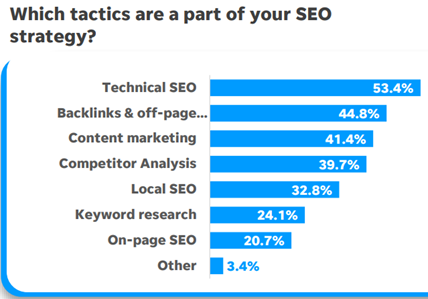
What are the pros and cons of SEO?
Pros:
- Improves website visibility
In contrast to most marketing campaigns, SEO can help you attract anyone with intent at a given point in time, regardless of stage of the buying journey they are at.
- Drives organic traffic to your website
A study conducted by Chikita found that the first organic listing on Google SERPs receives approximately 34% of traffic, while the second listing receives 18%, and traffic only diminishes from there. 75% of searchers never scroll past the first page of results, so you need to feature on the first search page to maximise organic results.
- Boosts your credibility
Search engines strive to provide useful information to their users. Therefore if you achieve a high ranking on the SERP this indicates that your business is high-quality and trustworthy, which boosts your credibility.
- Gains customers trust
Typically, people tend to prefer organic search results, therefore organically ranking high on SERP will make consumers believe you’re the best choice.
- Measurable results
SEO software or tools like Google Analytics lets you see how much traffic your site receives, what keywords you rank on, and how long visitors spend on each page.
- It doesn’t have to cost you anything
SEO does not cost anything unlike other marketing strategies such as pay-per-click.
Cons:
- You need to be patient to see results
SEO is a long-term strategy which doesn’t deliver results overnight. It takes time to grow organically online.
- Search engine algorithms are constantly changing
It can be hard to keep up with the ever-changing algorithms (especially Google). The updates aim to improve the user experience, however small changes can impact your website’s position and overall SERPs ranking. You can find a list of all Google Search ranking updates here.
- Highly competitive
Due to the nature of search engines, users are exposed to a lot of options for the same product, so you can be easily compared to your competition.
- Results are not always guaranteed
There are so many factors to SEO that it is complex to understand. Additionally, SEO factors are constantly evolving meaning it is impossible to guarantee specific results.
What is PPC?
Pay-per-click (PPC) is a marketing method that uses sponsored listings and adverts to drive traffic to a website. In this marketing model, advertisers pay a fee each time someone clicks their ad, hence the name ‘pay-per-click’.
Advertisers can bid on words or phrases that, when searched, will display their advertisement. With PPC, you pay each time someone clicks on that ad to get to your website.
What are the types of PPC:
- Paid search marketing: the most common type of PPC advertising and the most common search engine marketing (SEM) technique. This type of PPC is conducted solely through search engine platforms.
- Social media advertising: PPC ads on social media are very effective because it doesn’t require the customer to conduct a search to see your ad.
- Display marketing: these are the banners, images, or text ads within a website that are typically based on your previous searches.
- Affiliate marketing: a lot of brands use PPC marketing for affiliates, allowing them to earn money when users click on their individual profile or personal page.
The pros & cons of PPC:
Pros:
- Instant exposure
Delivers almost immediate results especially in comparison to organic SEM.
- PPC is cost-effective
You only pay when a user actually reaches your website, furthermore there are budgeting options so you can choose to spend as much or as little as you like.
- You can showcase your ads on multiple different sites and networks
PPC as a marketing channel covers a number of different ad platforms, with the most common of these being Google Ads, Bing Ads, and Meta Business Manager (Facebook and Instagram Ads).
- PPC lets you access big data
You can track all your results and monitor campaign performance using tools such as Google Analytics.
Cons:
- PPC can be risky
Traffic can be inconsistent, and clicks don’t guarantee sales.
- Maintaining PPC ads is time-consuming
You need to invest time into optimising and improving to get the best results.
- Potentially decrease credibility
PPC ads can decrease your credibility, as some people prefer using organic search results.
- It can be complex to get it right
It requires skills to set up effective campaigns. Often businesses will choose to use a specialist agency
Want to learn more about PPC? Check out our ultimate guide to PPC advertising.
Differences between SEO and PPC.
SEO is an unpaid long term strategy to organically generate higher rankings, and is restricted to search engines platforms. Whereas PPC is a paid for short term advertising model, which can be used across, search, social, display and affiliate marketing.
SEO:
- Long-term strategy
- Unpaid
- Restricted to search engines
PPC:
- Short-term strategy
- Paid
- Used across, search, social, display and affiliate marketing.
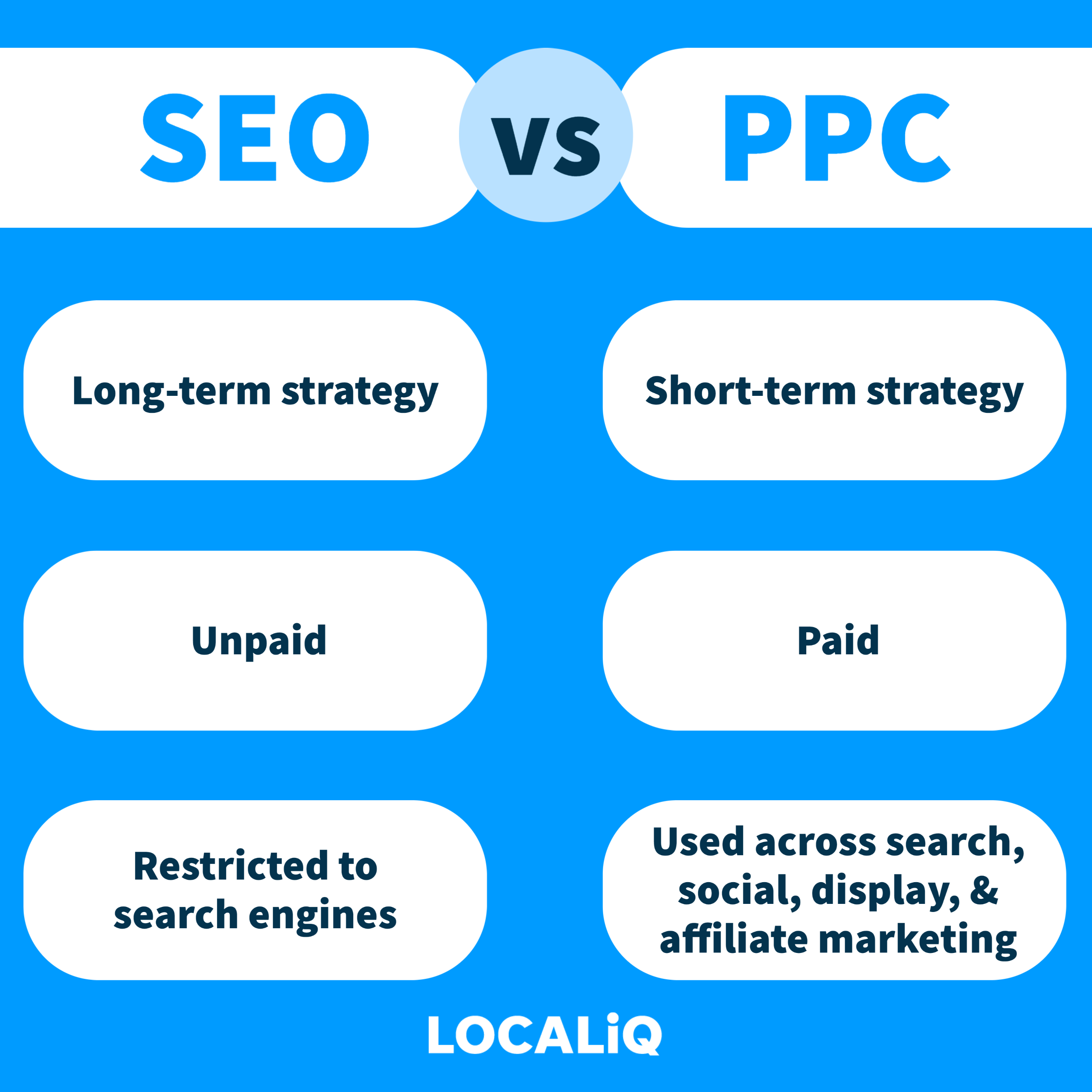
Should you be using SEO or PPC?
The goal of both marketing strategies is to drive traffic to a website as well as generate conversions. Hence why a combination of SEO and PPC marketing works extremely well. PPC helps your site appear at the top of paid search results, while SEO organically does the same.
Ideally you want to invest resources into both SEO and PPC. However, if you don’t have the resources for both, it will be dependent on your overall marketing goal.
If your goal is to drive a lot of traffic to your website quickly, PPC ads are your best bet. On the other hand, if you are aiming to improve your business’s online presence and exposure over time, SEO is the answer.
You will get instant exposure through PPC ads, but implementing continual SEO strategies will result in steady traffic over time.
At LOCALiQ we take the time to understand your business, creating the most cost-effective paid advertising campaign for your budget – ensuring your paid ads appear in front of the right people.
Our team of digital marketing specialists provide you with expert marketing support – from PPC campaign management and professional SEO and content marketing services, to paid social, digital display advertising and much more.
Get in touch to find out how to get the best results from your campaigns.


